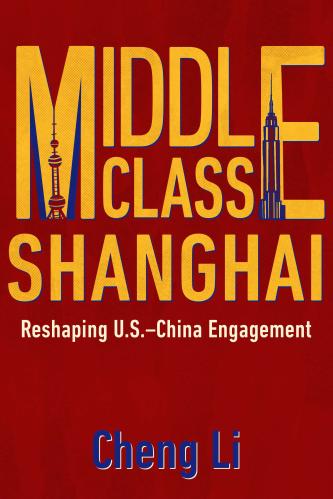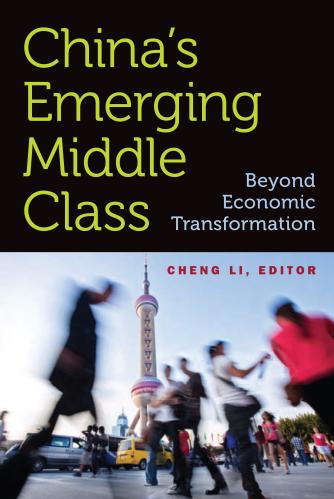In his new book, “Middle Class Shanghai: Reshaping U.S.-China Engagement,” Brookings expert Cheng Li, who directs the John L. Thornton China Center at Brookings, argues that American policymakers should not overlook the dynamism and diversity in present-day China, exemplified by the city of Shanghai and its expansive and cosmopolitan middle-class culture. Moreover, Li argues, Washington should neither underestimate the role or the strength of the Chinese middle class, nor alienate this force with policies that push it toward nationalism to the detriment of both countries and the global community. On this episode, Brookings Institution Press director Bill Finan talks with Li about his book, a conversation in which Li takes us from his growing up in Shanghai during the Red Terror of the Cultural Revolution; to a Chinese middle class today that enjoys the markers of a middle-class lifestyle; and even to the avant-garde art scene in that city.
Also on this episode, Senior Fellow John McArthur, director of the Center for Sustainable Development, explains the “17 Rooms” initiative, an experiment launched by Brookings and The Rockefeller Foundation to stimulate new forms of discussion and action for the 17 Sustainable Development Goals.
See also:
Rediscovering China: Dynamics and Dilemmas of Reform
Follow Brookings podcasts here or on iTunes, send feedback email to [email protected], and follow us and tweet us at @policypodcasts on Twitter.
The Brookings Cafeteria is part of the Brookings Podcast Network.
The Brookings Institution is committed to quality, independence, and impact.
We are supported by a diverse array of funders. In line with our values and policies, each Brookings publication represents the sole views of its author(s).









Commentary
PodcastChina’s middle class in dynamic Shanghai
May 21, 2021
Listen on
Brookings Cafeteria Podcast